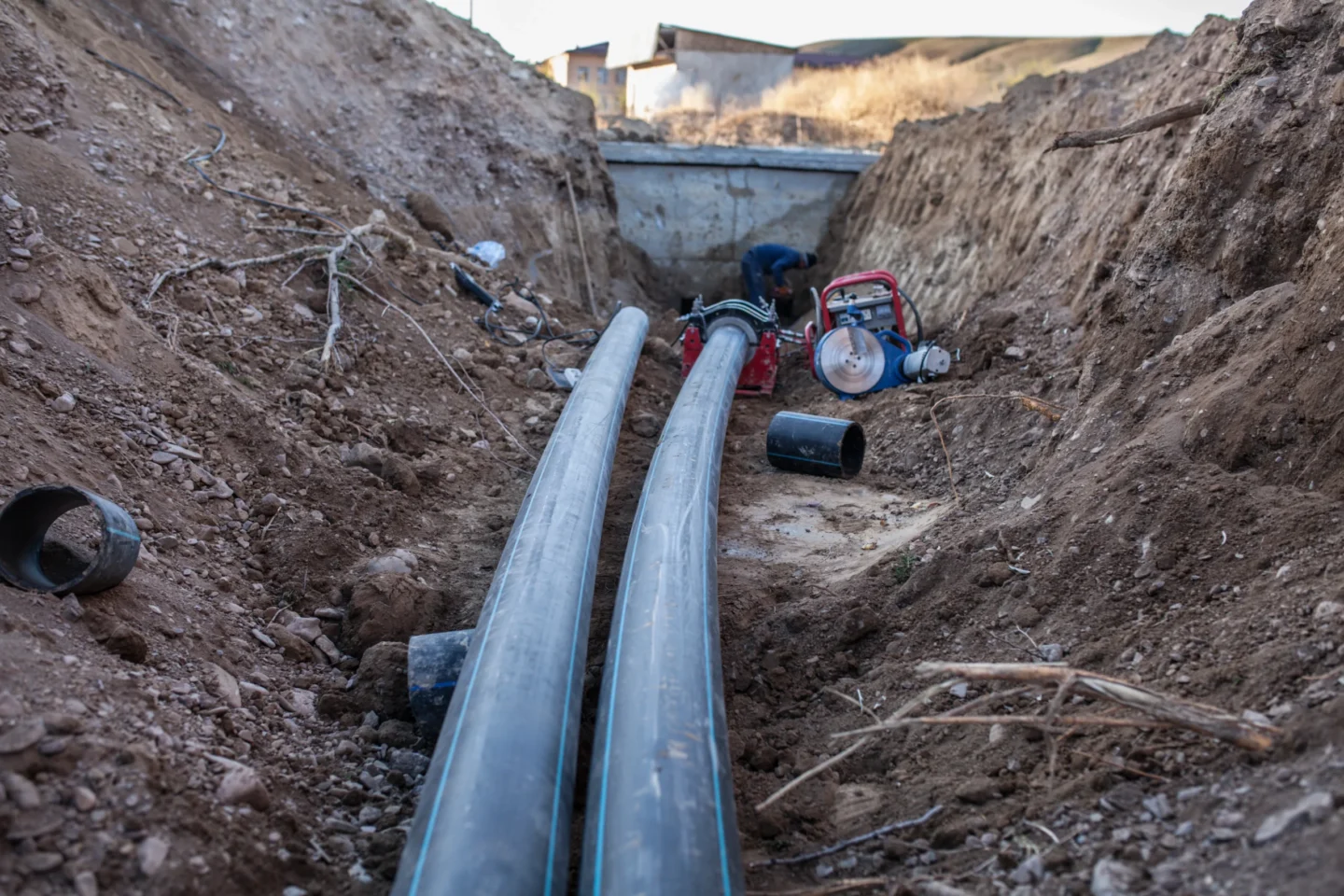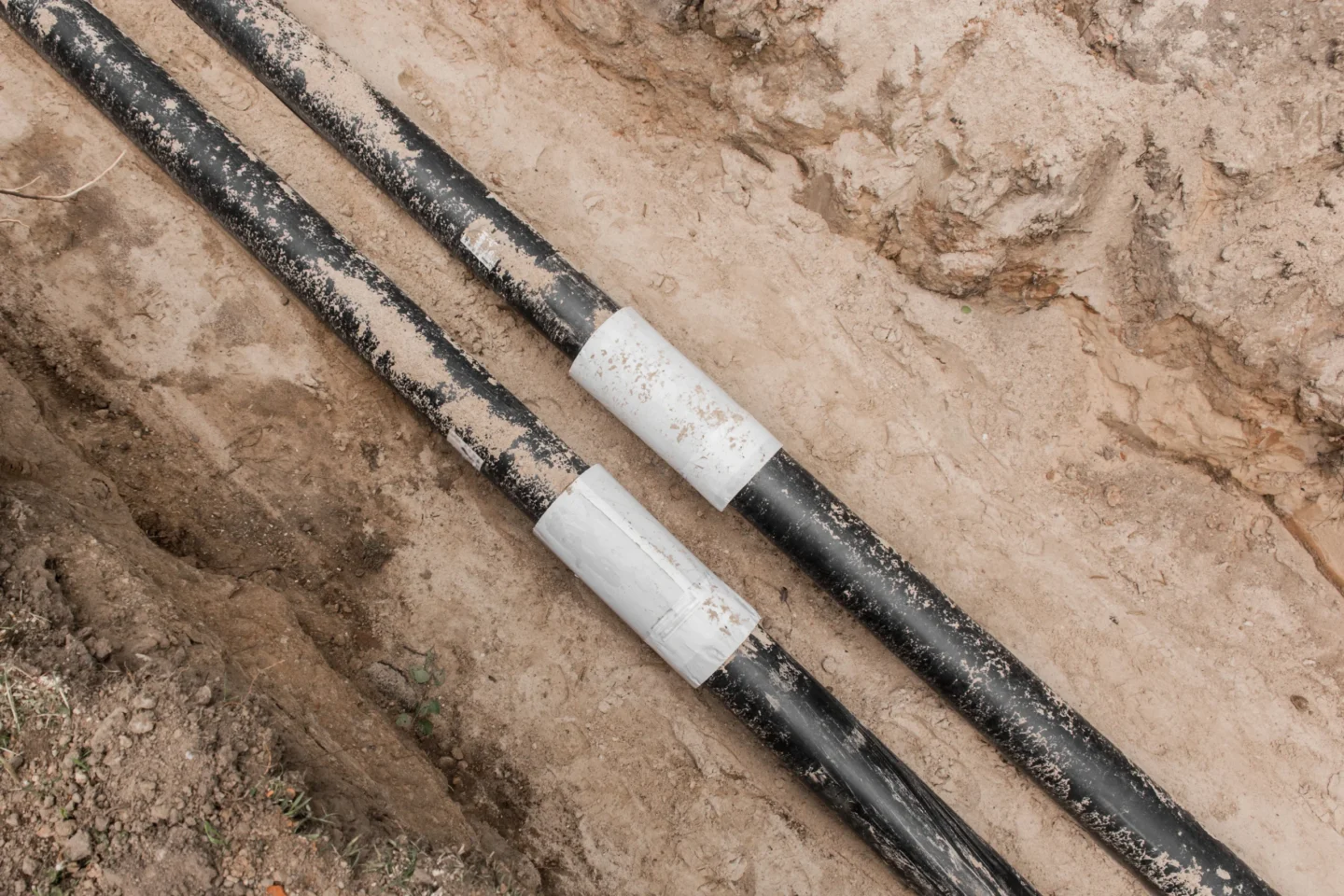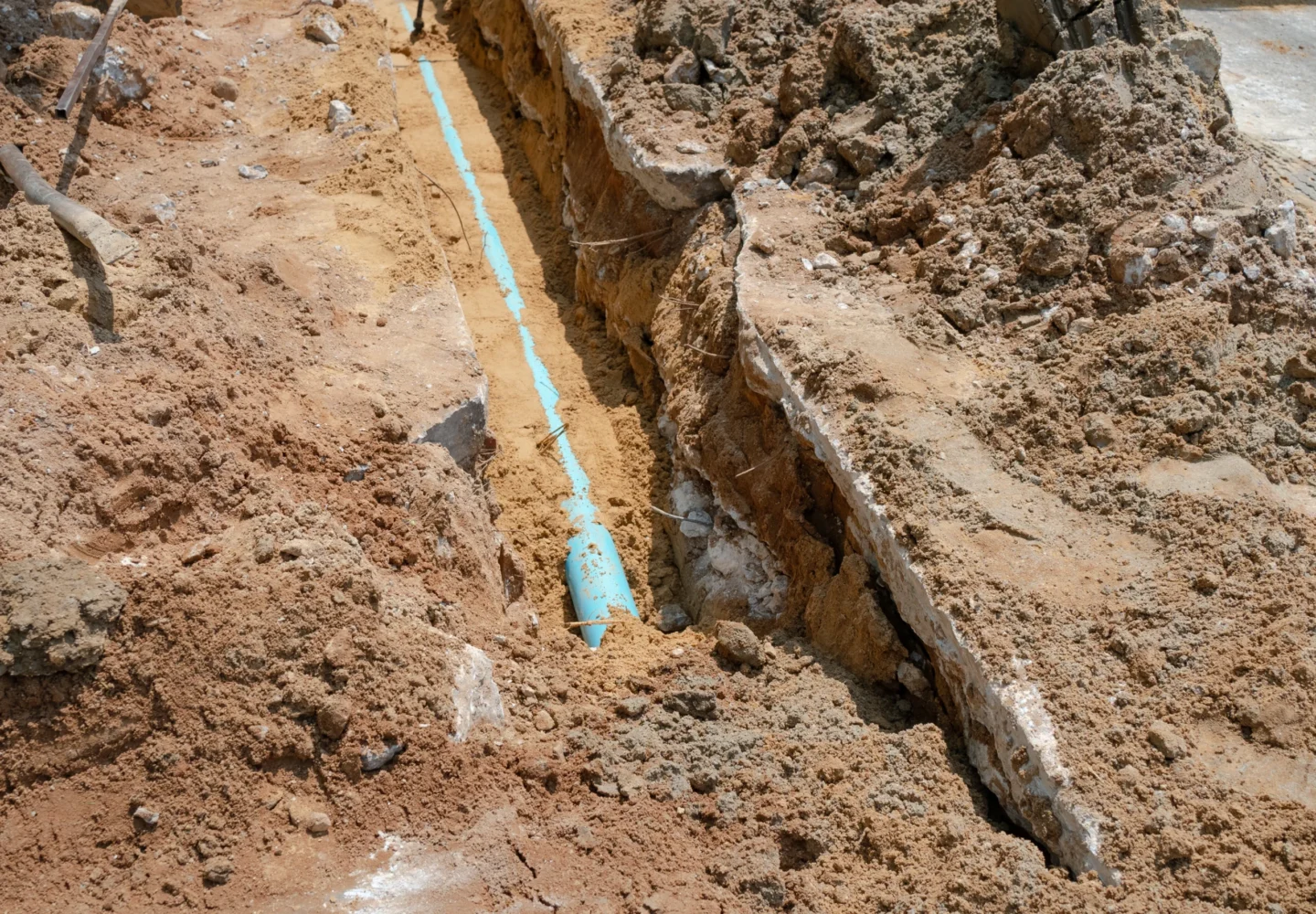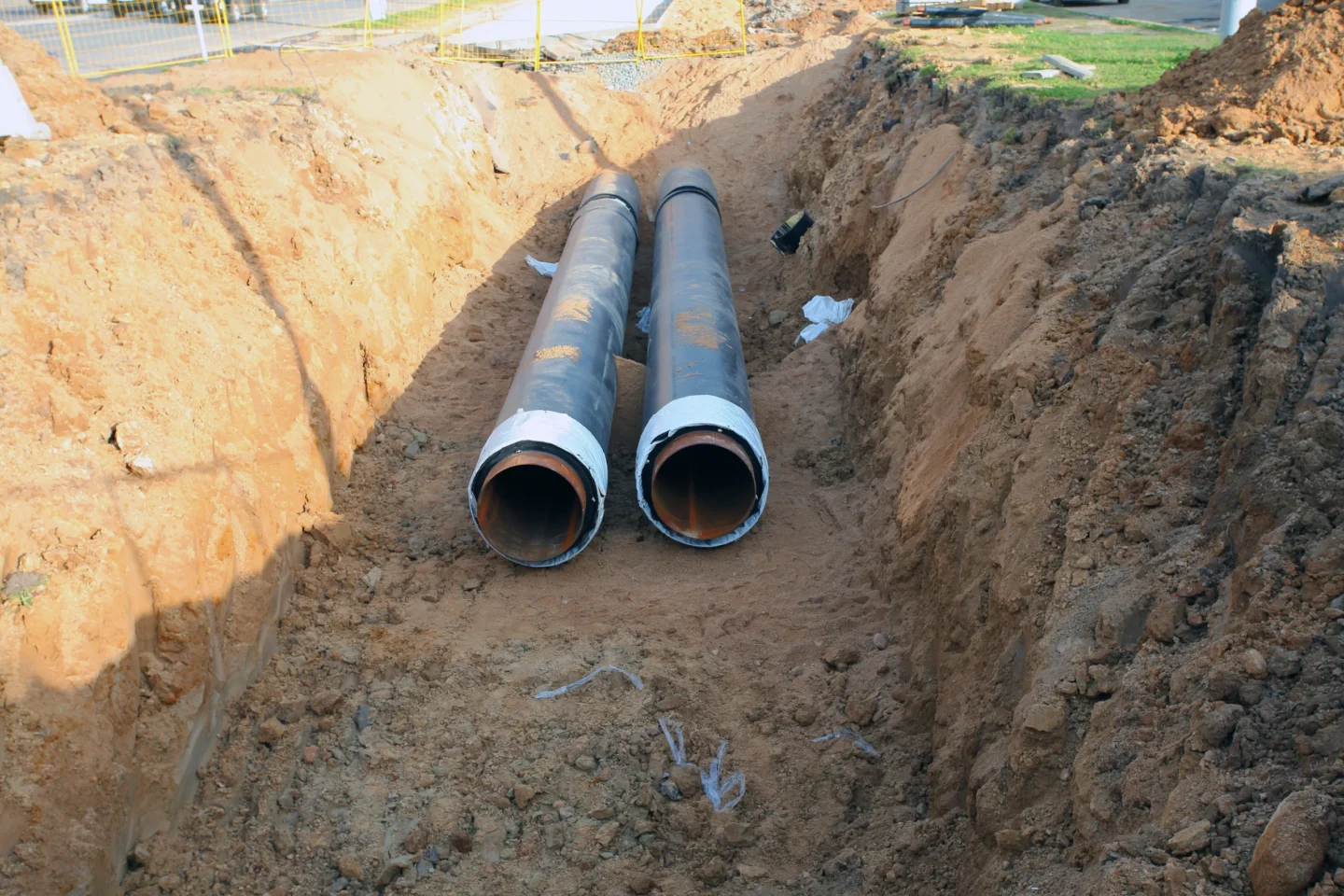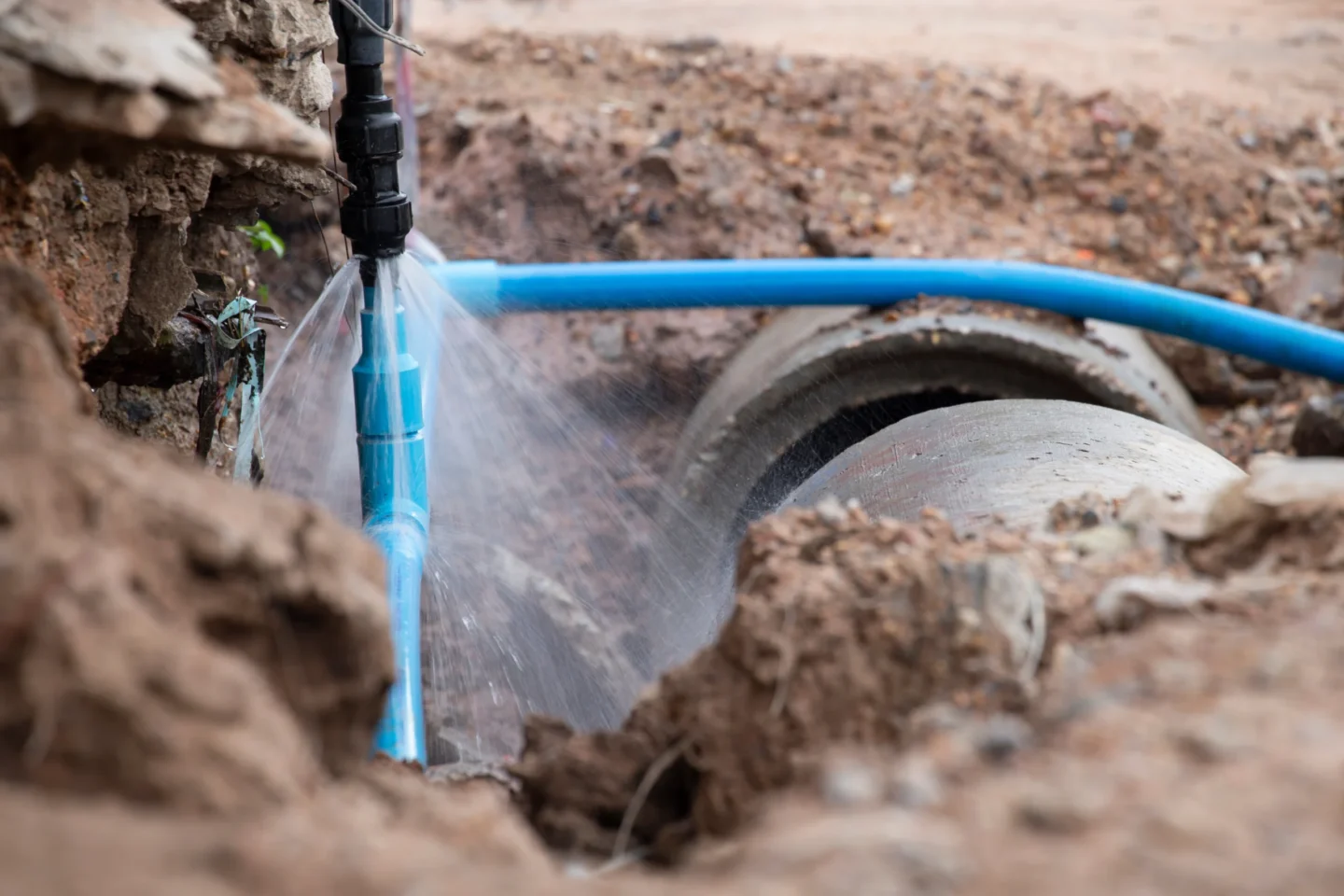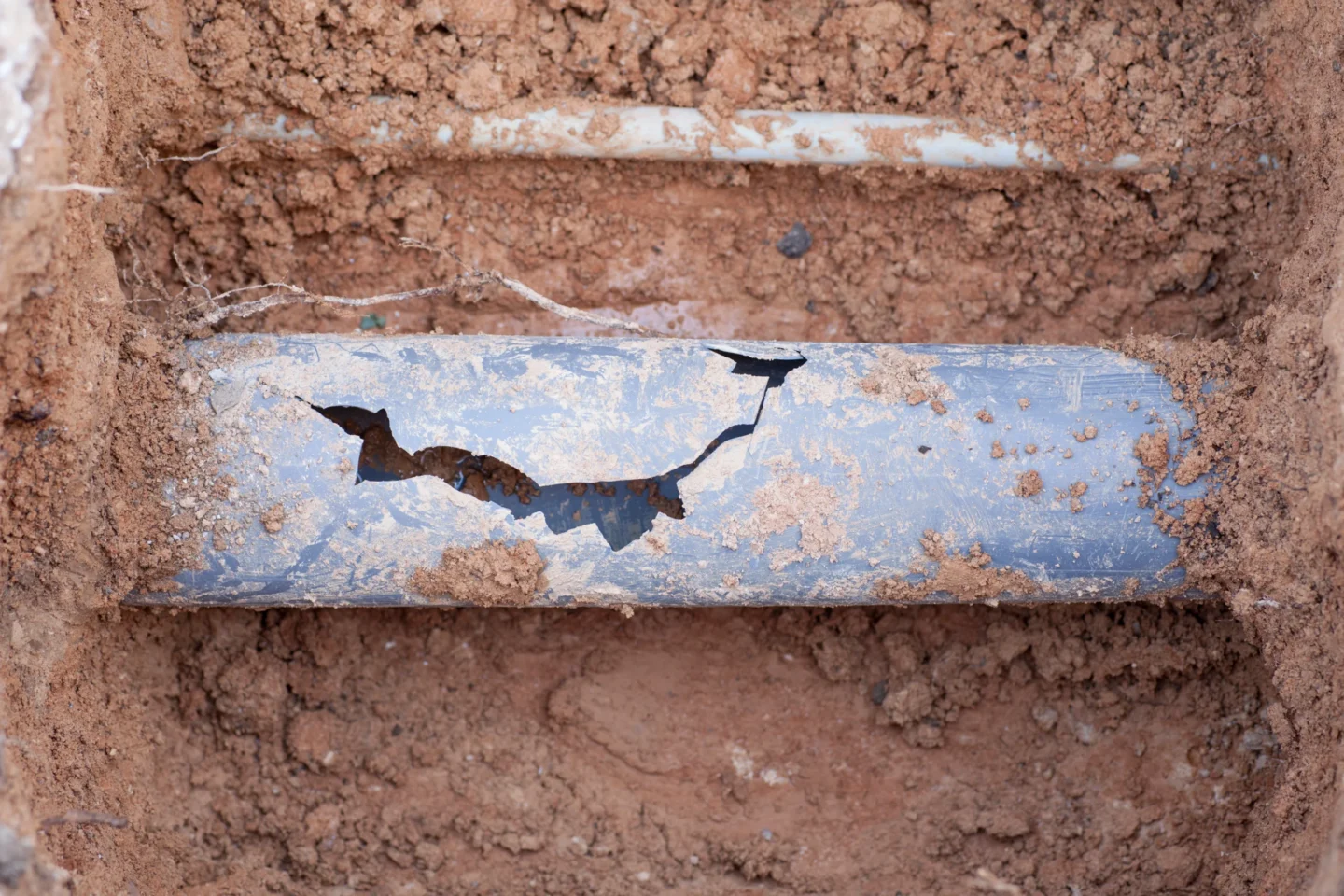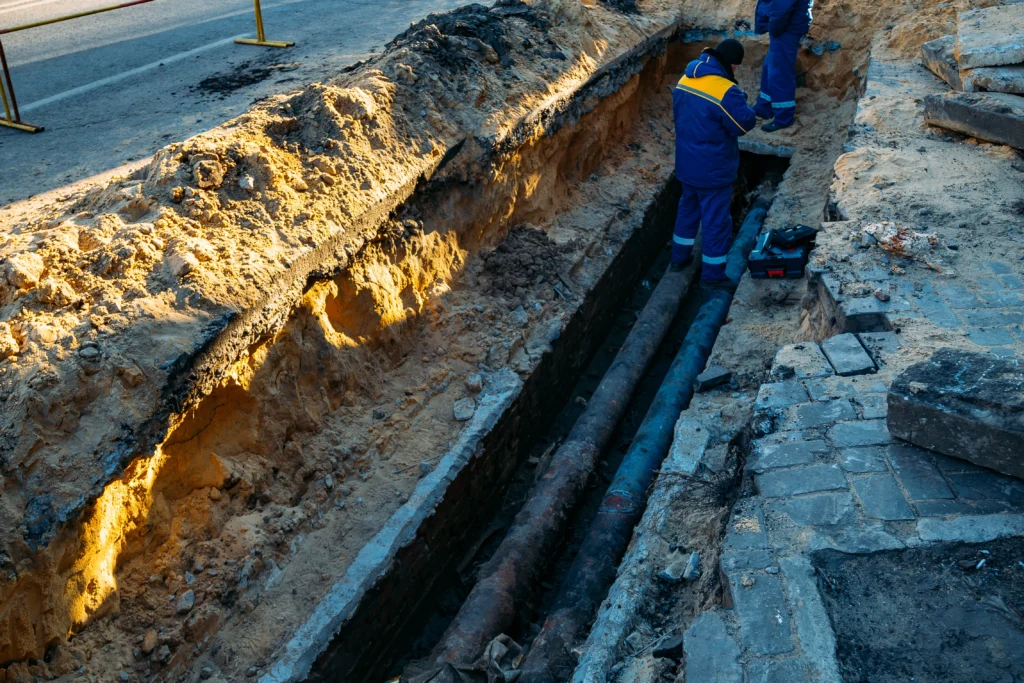
Understanding the basics of your Fairview Heights, IL home’s sewer line is crucial to prevent potential problems that can lead to costly repairs. Here’s everything homeowners should know about maintaining and managing their sewer lines effectively.
Understanding Your Sewer System
Sewer lines are critical components of your home’s plumbing system, responsible for transporting wastewater from your Fairview Heights, IL home to municipal treatment facilities or septic systems. Typically made of PVC, clay, cast iron, or other materials, these pipes can vary in size and layout depending on the age and design of your home.
Common Issues with Sewer Lines
Several issues can affect sewer lines, including blockages, tree root intrusion, and general deterioration:
- Blockages are often caused by flushing inappropriate items down the toilet or from build-ups of grease and other materials in the pipes.
- Tree roots can infiltrate sewer lines through joints or cracks in search of water, gradually obstructing or damaging the pipe.
- Corrosion or deterioration of older pipes, especially those made from clay or cast iron, can lead to collapses or leaks over time.
Preventative Maintenance
Regular maintenance can prevent many common sewer line problems:
- Avoid flushing non-degradable items such as wet wipes, diapers, and feminine hygiene products. Even items labeled as “flushable” may still lead to clogged pipes.
- Keep grease out of your drains. Grease solidifies within the sewer line, accumulating debris and causing blockages.
- Use strainers in sinks and showers to catch hair and other debris before they enter the drains.
Recognizing Warning Signs
Early detection of sewer line issues can save you from facing more severe problems. Key warning signs include:
- Frequent backups or slow drains, which often indicate a blockage in the line.
- Gurgling sounds from your toilet, which can suggest a blockage in the vent pipe or sewer line.
- Unpleasant odors emanating from drains or around your property, which could indicate a break in the sewer line.
- Patches of unusually green grass on your lawn could suggest a sewage leak fertilizing the area.
What to Do in Case of Problems
If you suspect an issue with your sewer line, it’s best to act quickly:
- Consult a professional plumber who can conduct a sewer camera inspection to pinpoint the exact nature and location of the problem.
- Consider trenchless repair methods such as pipe lining or pipe bursting, which can fix or replace sewer lines without extensive excavation.
Cost Considerations
The cost of repairing or replacing a sewer line can vary greatly depending on the extent of the damage, the repair method chosen, and local labor rates. It’s wise to get multiple quotes and understand the pros and cons of different repair methods.
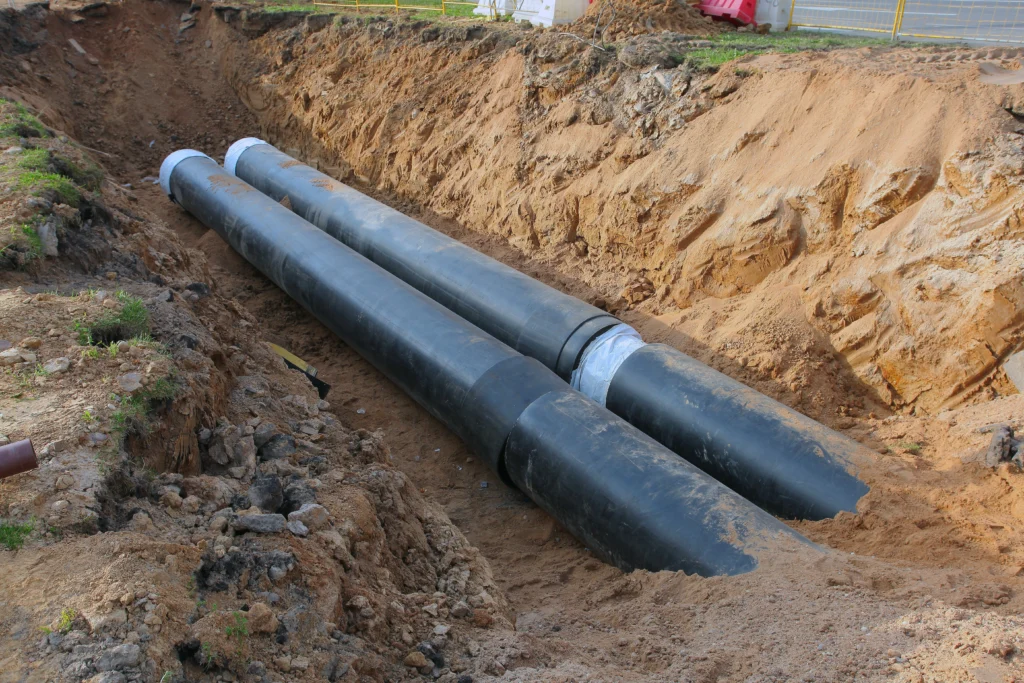
Insurance and Warranties
Review your homeowner’s insurance policy to understand what is and isn’t covered regarding sewer line issues. Some policies offer specific sewer line endorsements, or you might consider a home warranty that covers major plumbing repairs.
If you are a homeowner in Fairview Heights, IL, call Bailey Sewer & Water for all your sewer line needs.



